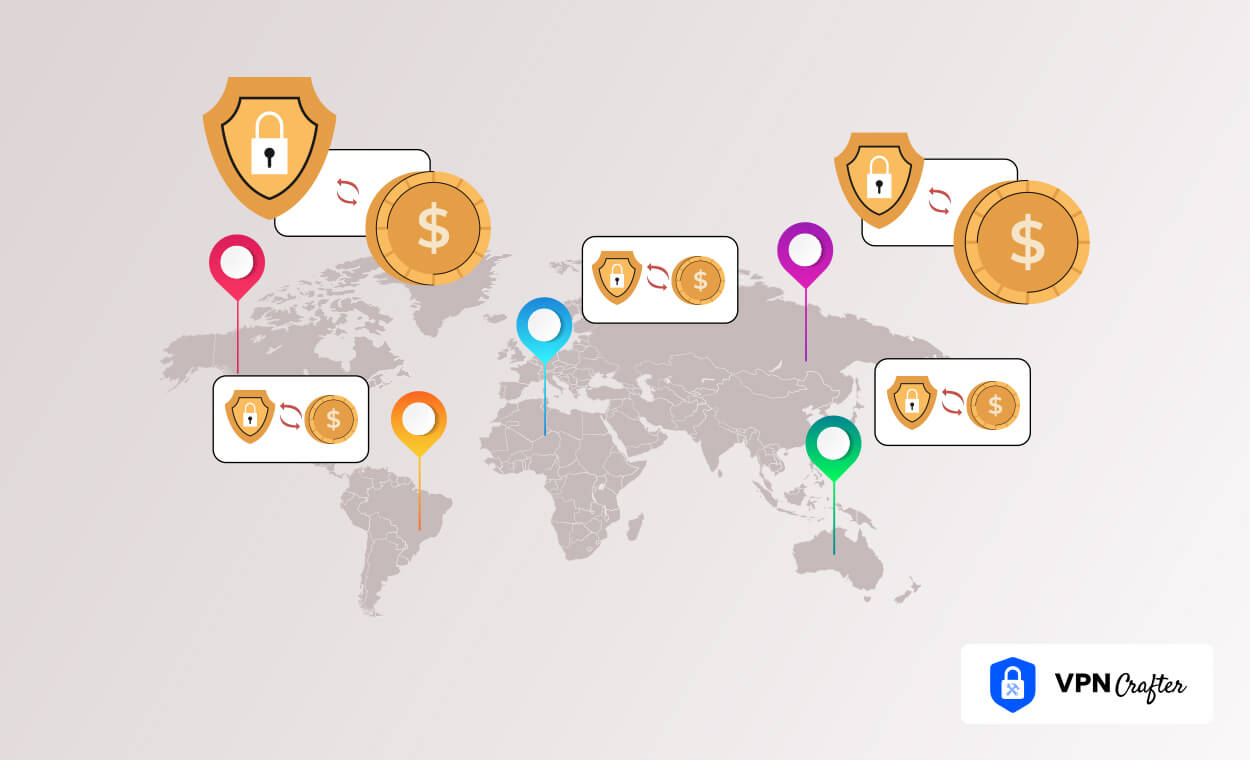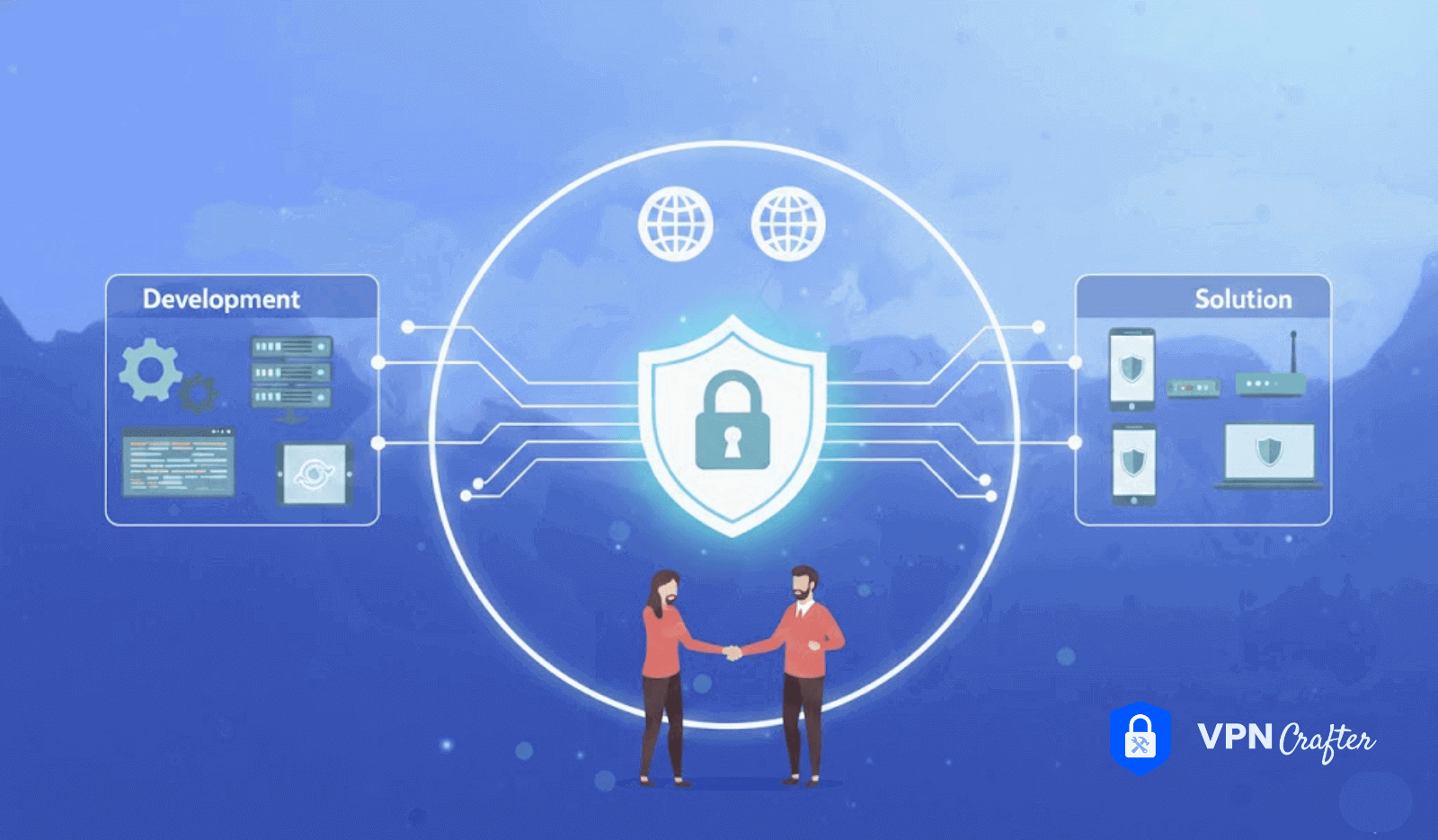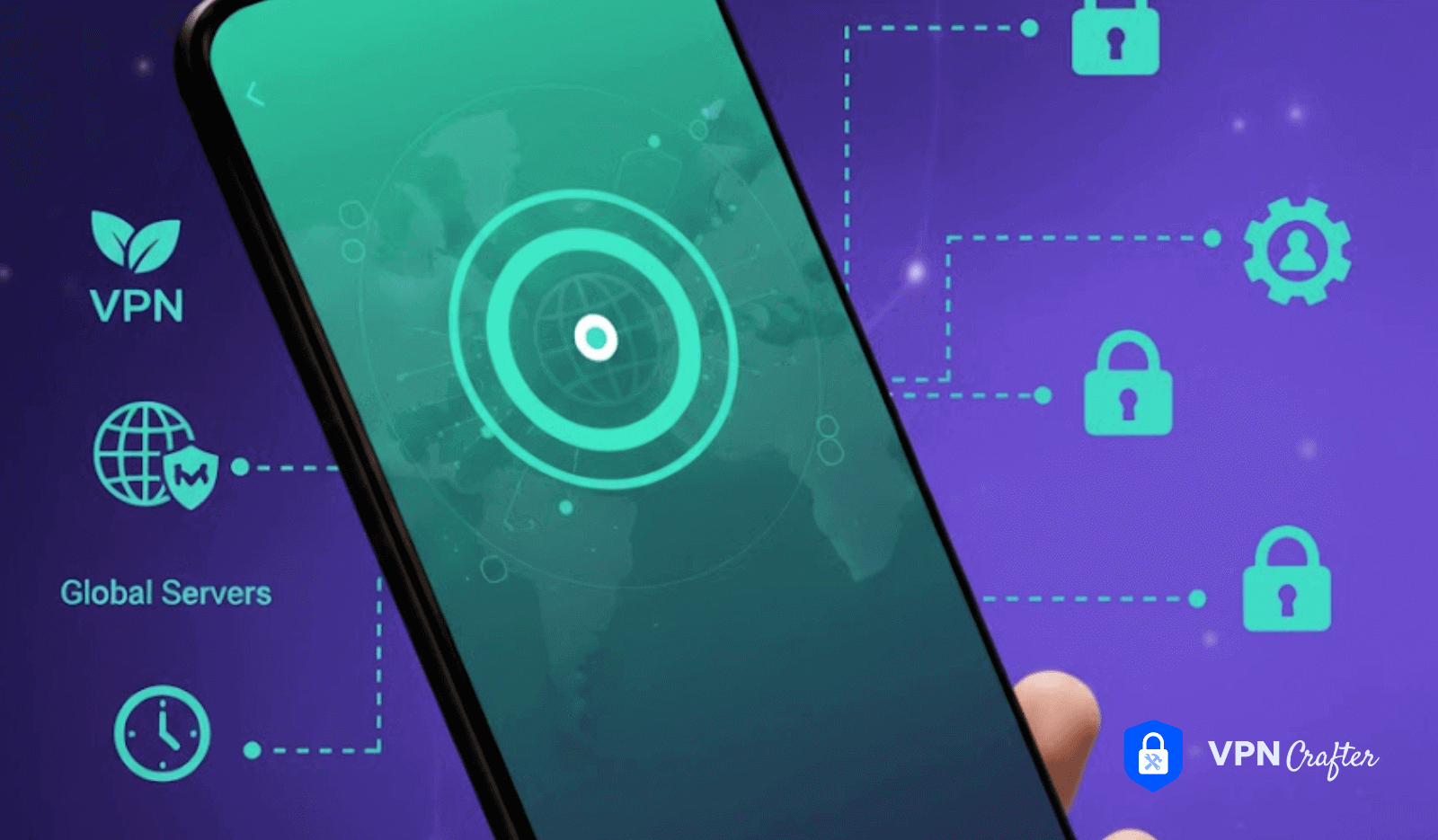Choosing the right country is an important step when starting your VPN reseller business. Some locations offer better market opportunities, flexible laws, and a growing demand for privacy tools. Others might be too competitive or have strict rules that can limit your growth.
In this blog post, we’ll look at the best countries to launch your VPN reseller business so you can make a smart and successful start.
So, without further ado, let’s dig deeper.
How to Assess Market Demand for VPN Services in Different Regions
Before launching a VPN service or reseller business, understanding regional market demand is critical to success. Different regions have different needs, internet policies, and levels of digital awareness. Here’s how you can assess the market demand effectively.
i. Understand regional internet censorship and regulation
Countries with strict internet censorship such as China, Iran, Russia, or Turkey often have high demand for VPNs, as users seek to bypass restrictions. You can track these countries through internet freedom indexes like Freedom House or OpenNet Initiative. Also, assess regions where VPN use is banned or tightly regulated — this could affect business viability despite demand.
ii. Analyze search volume and online trends
Use tools like Google Trends to compare interest in “VPN,” “private internet access,” or “unblock websites” across different countries or cities. Platforms like Ahrefs or SEMrush can help you evaluate keyword search volume for VPN-related queries by country. YouTube, Reddit, and Twitter are also useful for spotting regional conversations around internet freedom or VPNs. High organic search volumes usually indicate active interest or unmet demand.
iii. Examine internet penetration and mobile usage
Regions with growing or high internet penetration and mobile device usage typically have more potential VPN users. You can find reliable stats from ITU, Statista, or DataReportal. Mobile-first countries such as India, Indonesia, or Brazil with rising digital adoption are promising markets.
iv. Check cybersecurity concerns and data privacy awareness
Countries or regions with frequent cyberattacks or low trust in government surveillance like the US, Germany, or Australia often see increasing VPN usage. Check awareness levels through surveys or reports such as Norton Cyber Safety Insights. Media coverage on data leaks or surveillance laws can also indicate rising demand.
v. Evaluate local competitors and pricing models
Research existing VPN brands targeting specific regions. See whether they offer local language support, localized payment methods, or competitive pricing. If only a few players dominate, there may still be room for niche offerings. App stores, forums, and local tech blogs are good sources for this information.
vi. Consider economic and political stability
VPNs are often purchased as subscription-based services, so the economic strength of a region plays a key role. Look at disposable income levels and the population’s willingness to pay for privacy-related services.
What Legal Considerations Affect VPN Reselling in Various Countries
VPN reselling involves more than just offering secure internet access—it requires navigating complex legal frameworks that differ around the world. In many regions, the first legal hurdle is government authorization. Countries like the United Arab Emirates permit VPN use but impose strict penalties if they’re used for activities the state deems illegal, such as unapproved VoIP services.
In China, the rules are even tighter, with only government-approved VPN services allowed to operate. Reselling a VPN without official approval in such countries can lead to prosecution or business bans. Russia enforces similar restrictions by requiring all VPN providers to register and comply with censorship mandates, making it essential for resellers to align with local regulations.
Another key area is data handling and privacy obligations. In the European Union, GDPR regulations govern how user data is collected, stored, and disclosed. Even VPN resellers located outside the EU must comply if their services are used by EU residents, which means maintaining transparency about logging policies and data usage.
Australia’s telecom laws, especially the TSSR, require VPN providers to share metadata with authorities upon request. For resellers, these regulations mean greater responsibility in managing user information and updating terms of service to reflect local legal standards.
In addition to data and licensing concerns, outright restrictions or bans on VPNs add further complexity. In Iran, VPNs are legal only if licensed by the government, and unauthorized reselling is strictly prohibited. In Turkey, while VPNs aren’t officially banned, they are frequently blocked and monitored, increasing the risk for both providers and users.
Resellers must be cautious when targeting or marketing to customers in such regions, as legal consequences can be severe. Understanding the legal climate of each country is essential before entering or expanding into that market.
Country-specific legal challenges
Best Countries to Launch Your VPN Reseller Business
Launching a VPN reseller business can be highly profitable, but choosing the right country is key to long-term success. Some locations offer better legal protection, higher demand, and smoother operations than others.
1. United States: High demand with business freedom
The U.S. offers one of the most open markets for VPN resellers, with no licensing barriers and a population that values digital privacy. While competition is intense, the vast user base and growing concerns about data tracking make it a prime location to start or scale a VPN business.
2. Germany and the Netherlands: Privacy-centric EU hubs
Both Germany and the Netherlands offer legal clarity under the GDPR, making them attractive for businesses committed to user privacy. Consumers here are highly aware of digital rights, which makes transparency and compliance a strong selling point for VPN resellers.
3. Canada: Privacy-aware and less saturated
Canada is similar to the U.S. in terms of internet freedom but is slightly less competitive. Its population is digitally literate and conscious about online security, providing fertile ground for new VPN resellers who want to build a loyal customer base.
4. Singapore: Gateway to the Asian VPN market
Singapore combines tech innovation with strong infrastructure and regional influence. It serves as a great launchpad for VPN resellers looking to tap into Southeast Asian markets, where demand is rising due to increasing censorship and surveillance in neighboring countries.
5. Switzerland: Gold standard for data protection
Known for its strict data privacy laws and neutrality, Switzerland is a trusted location for VPN services. Operating from here gives resellers a competitive edge in branding, especially when marketing security and zero-logs policies to global users.
Best Strategies to Establish a VPN Reseller Business in Targeted markets
Establishing a VPN reseller business takes more than just choosing the right provider. It demands a smart, localized approach. To succeed in specific markets, you need strategies tailored to legal environments, user behavior, and regional expectations.
Understanding local laws and compliance first
Before entering any market, research the country’s regulations regarding VPN usage, data privacy, and telecom services. Make sure your business complies with local laws to avoid fines, shutdowns, or legal battles. In regions with strict rules, consult with legal experts to adapt your service responsibly.
Partnering with a trusted VPN provider
Choose a parent VPN company with a strong reputation, flexible reseller programs, and a no-log policy. A reliable backend ensures security, speed, and support—factors that build trust with users in highly competitive or privacy-conscious markets.
Adapting marketing for regional relevance
Craft messaging that reflects local values, pain points, and language preferences. In privacy-conscious countries like Germany or Canada, highlight security and data protection. In regions like Southeast Asia, focus more on access to unrestricted content and affordability.
Offering local payment and support options
Integrate regionally popular payment gateways and offer customer support in local languages or time zones. This small step significantly improves user experience and builds loyalty, especially in culturally diverse or underserved markets.
Creating scalable pricing models
Offer flexible plans suited to different user needs such as monthly, annual, and multi-device options. Competitive, transparent pricing with occasional promotions or trials can help attract early adopters and convert them into long-term users.
Building trust through transparency
Clearly communicate your logging policies, encryption standards, and jurisdiction. Users in targeted markets will feel more confident signing up when they understand exactly how their data is being handled and protected.
How do International Sanctions Affect VPN Reseller Operations
Before diving into global markets as a VPN reseller, it’s vital to understand how international sanctions shape where and how you operate. Sanctions are powerful legal and financial restrictions that can directly limit your reach, partners, and even the use of your services.
i. Restricted markets and service limitations
Sanctions often block VPN resellers from doing business in certain countries like Iran, North Korea, Syria, or Cuba. These restrictions are enforced by governments and financial institutions, meaning payment processors and domain registrars might refuse to work with you if your business reaches those regions. Even if you aren’t based in a sanctioned country, offering VPN access to individuals there could make you legally liable depending on your home country’s laws.
Additionally, software and infrastructure providers—such as server hosts and API services—may block usage in sanctioned countries. This affects the reliability of your service and limits your ability to offer a global product, especially if your business model relies on white-labeled infrastructure from companies that follow U.S. or EU restrictions.
ii. Financial and legal risks for resellers
Ignoring sanctions can trigger serious consequences: frozen payments, banned merchant accounts, or complete platform suspension. Payment gateways like Stripe or PayPal have strict compliance rules, and even a single transaction from a restricted country can lead to account termination. Legal actions may follow, especially if you’re dealing with export-controlled encryption technologies without proper licensing or due diligence.
Resellers may also face compliance audits or requests for user data, depending on their location. If you are reselling services from a provider that abides by U.S. sanctions, you’ll need to ensure your customers don’t violate those terms—or risk being blacklisted yourself.
iii. How to stay compliant
To operate safely and legally, VPN resellers should use IP geo-blocking to restrict access from sanctioned countries. Additionally, work only with infrastructure and payment partners that support compliance and provide tools for monitoring high-risk activity. Regularly review updates from OFAC (U.S.), the EU Sanctions Map, and your local regulatory bodies to stay ahead of changes.
Sanctions don’t just affect governments—they directly shape the VPN landscape. For resellers, staying informed and compliant isn’t just best practice—it’s survival.
Meet VPN Crafter That Provides White Label VPN Solution Worldwide
In a world increasingly concerned with online privacy, VPN Crafter steps in as the game-changing platform for entrepreneurs aiming to launch their own VPN brand. Whether you’re an agency, tech startup, or independent reseller, VPN Crafter gives you the infrastructure to go global—fast.
i. Launch your own VPN brand in days, not months
VPN Crafter removes the headaches of developing complex infrastructure from scratch. With their fully managed white-label solution, you get access to a global server network, custom apps, billing tools, and backend dashboards—all under your own brand name. This means you focus on marketing and customer acquisition, while VPN Crafter handles the tech.
Their cross-platform apps are designed for Windows, macOS, Android, and iOS, offering sleek and secure user experiences. And with customization tools, you can align everything—from logos to color schemes—to your brand identity.
ii. Compliant, secure, and scalable
VPN Crafter is built with compliance and scalability in mind. They offer integrations with major payment gateways, comply with GDPR and other privacy standards, and deploy advanced encryption protocols that meet global expectations. Whether you’re targeting niche privacy-conscious users or broader digital markets, VPN Crafter ensures your service can scale without breaking compliance rules.
The platform also includes user management systems, subscription controls, and analytics dashboards, giving resellers everything needed to grow their VPN business with full visibility and control.
Why VPN Crafter is ideal for global VPN resellers
If you’re exploring VPN reselling in markets around the world, VPN Crafter offers everything you need to start quickly, stay secure, and expand with confidence. Their turnkey solution empowers resellers to reach users worldwide—without worrying about infrastructure maintenance, legal gray zones, or inconsistent performance.
Whether you’re launching in privacy-restricted countries or just offering secure browsing solutions for everyday users, VPN Crafter equips you with the tools and tech to stand out.
Final Thoughts
Choosing the right country to launch your VPN reseller business isn’t just about internet demand; it’s about aligning with privacy laws, infrastructure, and payment accessibility. Nations with open digital markets, high internet usage, and strong support for digital entrepreneurship offer the best growth potential.
Countries like the USA, Germany, Canada, Singapore, and the Netherlands strike the right balance between legal clarity and tech readiness. Launching your business in these regions not only ensures smoother operations but also builds long-term trust with privacy conscious users worldwide.





